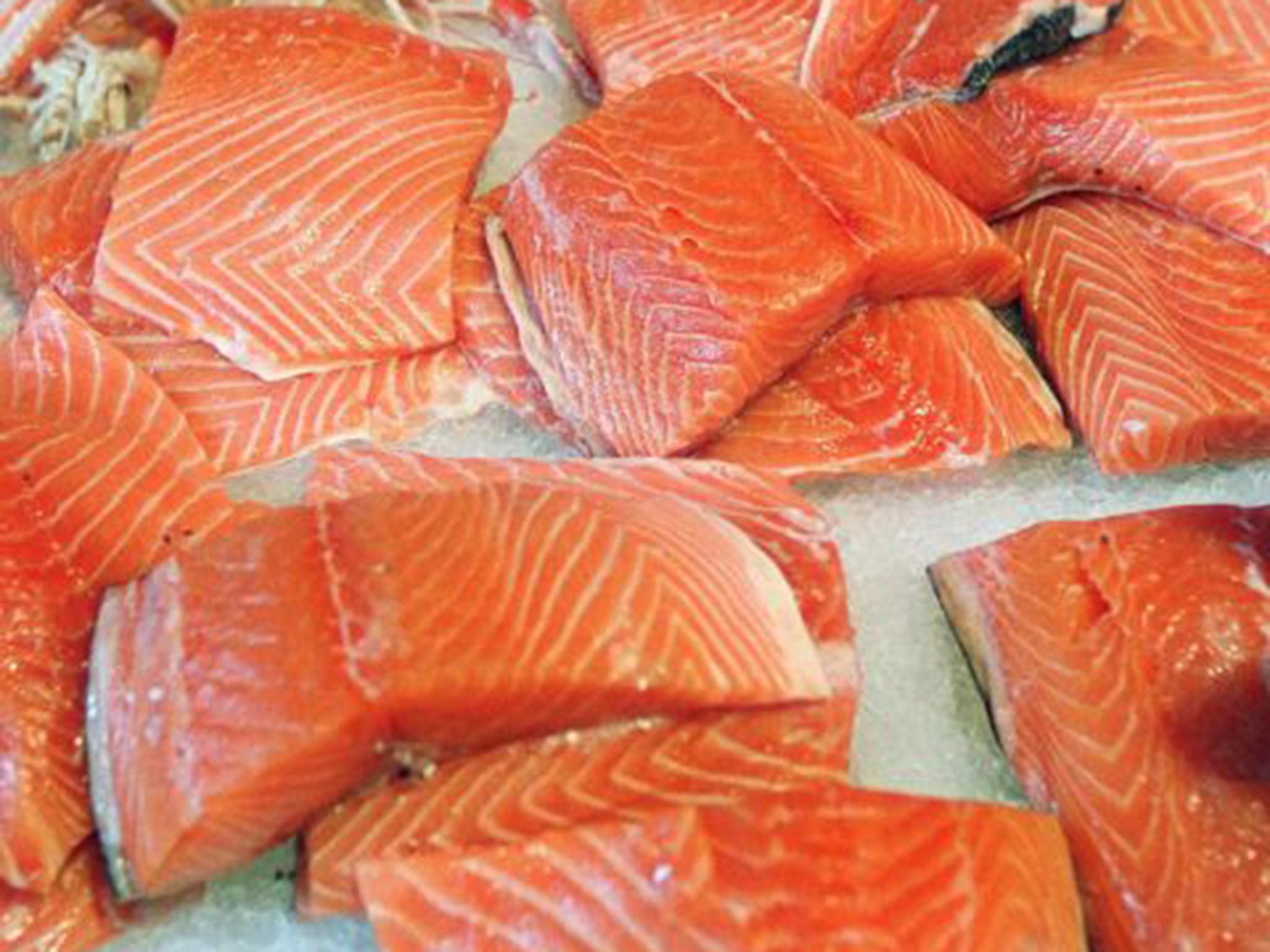Why the salmon on your plate might not actually be salmon
The finding is an example of the 'poorly regulated global seafood market' according to a new study

Salmon that ends up on the dinner table may not be salmon at all, a study has suggested.
The problem of salmon mislabelling has become an increasing issue in the US in the winter months, according to American research published by Oceana.
The findings show that 43 per cent of the salmon tested was mislabelled – the most common instance of this being when farmed Atlantic salmon was sold as wild salmon.
In restaurants, the study said diners were three times more likely to be misled than shoppers in supermarkets – with 67 per cent versus 20 per cent of samples mislabelled respectively.
Researchers said the degree of mislabelling was dependent on the time of year and that it was explained by the “poorly regulated” nature of the global seafood market.
“Though fishermen catch enough salmon to satisfy over 80 per cent of our domestic demand, on average 70 over cent of that catch is exported instead of staying in the US,” a summary of the findings said.
“Some domestic wild-caught salmon likely makes its way back, but only after entering an opaque and poorly regulated global seafood market.
“During this journey, information about the fish can get lost: which species it is, whether it was farmed or wild, and how and where it was caught.
“Failing to track this key information throughout the supply chain contributes to high rates of seafood fraud.”
The researchers said consumers should urge the US government to make catch documentation a requirement for all.
“Transparency in the seafood supply chain is the only way for consumers to know what fish they are eating, whether it is farmed or wild, and where and how it was caught,” they said.
Join our commenting forum
Join thought-provoking conversations, follow other Independent readers and see their replies
Comments
Bookmark popover
Removed from bookmarks